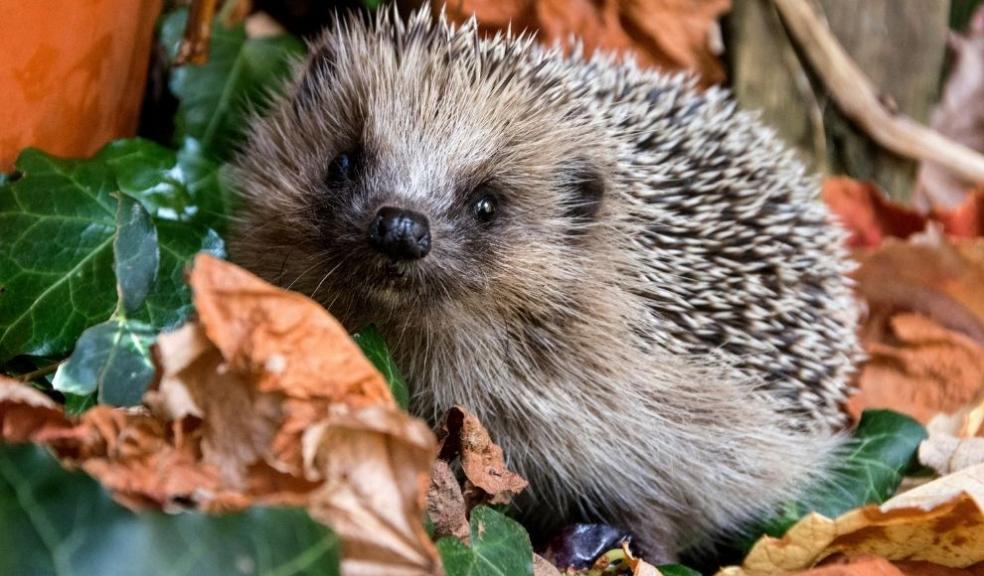
Tips to make your garden hedgehog-friendly
2021 marks the 10th birthday of Hedgehog Street, a nationwide campaign launched by wildlife charities People’s Trust for Endangered Species (PTES) and the British Hedgehog Preservation Society (BHPS).
Hedgehog Street aims to encourage people to become ‘Hedgehog Champions’ (volunteers who pledge to make their gardens more hedgehog friendly) in order to help stop the ongoing decline of Britain’s favourite mammal.
Now, to celebrate its 10th birthday this year, Hedgehog Street is asking members of the public to do 10 things to help hedgehogs throughout 2021, which are:
Get your garden ready for hedgehogs
1. Hedgehog Highways; link your garden with 13cm square gaps in fences to allow hedgehogs access to as many gardens as possible.
2. Create a wild corner; leaving an area of the garden wild and undisturbed will provide nesting materials and insect prey for hedgehogs.
3. Leave out food and water; meaty cat or dog food will supplement a hedgehog’s natural diet of creepy crawlies. Don’t forget a shallow dish of clean fresh water too.
4. Make a home for hedgehogs; a log pile or more structured hedgehog house will provide a safe nesting site for hedgehogs.
Look out for hazards
5. Make ponds safe; hedgehogs can get trapped in slippery steep-sided ponds so ensure yours has shallow sides or an escape ramp.
6. Deal with litter and netting; removing litter and tying up loose garden netting will prevent hedgehogs getting tangled and trapped.
7. Stop using chemicals; lawn treatments and slug pellets reduce invertebrate numbers, and may cause direct harm too, so go organic for hedgehogs.
8. Check before strimming/mowing; check areas carefully before using garden equipment to prevent any nasty accidents.
9. Take care with bonfires; build or move a bonfire on the day of burning to make sure there are no hedgehogs hiding inside.
And finally, spread the word!
10. Spread the word; become a Hedgehog Champion with Hedgehog Street and help us raise awareness with friends, family and on social media
To add to the celebrations, a brand-new garden challenge is being launched this March. This family friendly challenge aims to find out if the UK’s gardens are hedgehog havens, or if they’re in need of more hedgehog-friendly features in order to encourage more prickly nighttime visitors. Results from this online quiz will offer tailored advice to those who take part, suggesting simple improvements based on the answers provided.
Grace Johnson, Hedgehog Officer for Hedgehog Street says: “We know how much people love hedgehogs, but also how much they’re in trouble. Gardens are a fantastic habitat for hedgehogs if they have the right features and are connected to neighbouring gardens and/or green spaces. Our new garden challenge will provide bespoke advice to everyone who takes part, so helping our native hedgehogs couldn’t be easier. We already have over 90,000 amazing Hedgehog Champions who have made their gardens hedgehog friendly, and hope in our birthday year we can make that 100,000!”
The latest State of Britain’s Hedgehogs report, published in 2018 by BHPS and PTES, revealed that 50% of rural hedgehog populations and 30% of urban hedgehog populations have been lost since 2000. Most recently, hedgehogs were listed as ‘vulnerable to extinction’ on the Red List for Britain’s Mammals, published in 2020.
Several factors are contributing to this decline. They are complex, and include tidy, fenced in gardens, busy roads in urban areas, habitat fragmentation, intensification of agriculture and increased pesticide use in rural areas.
Grace adds: “There is some good news for hedgehogs: our State of Britain’s Hedgehogs 2018 report indicated that the rate of decline in our towns and cities appears to be stabilising. That is why we’re really pushing for everyone to do 10 things for hedgehogs during our birthday year, to build on this positive step forward and to help save this beautiful and iconic species from further decline.”
Hedgehog Street also partners with local councils, Wildlife Trusts and academic researchers in order to better understand and solve the challenges hedgehogs face.







